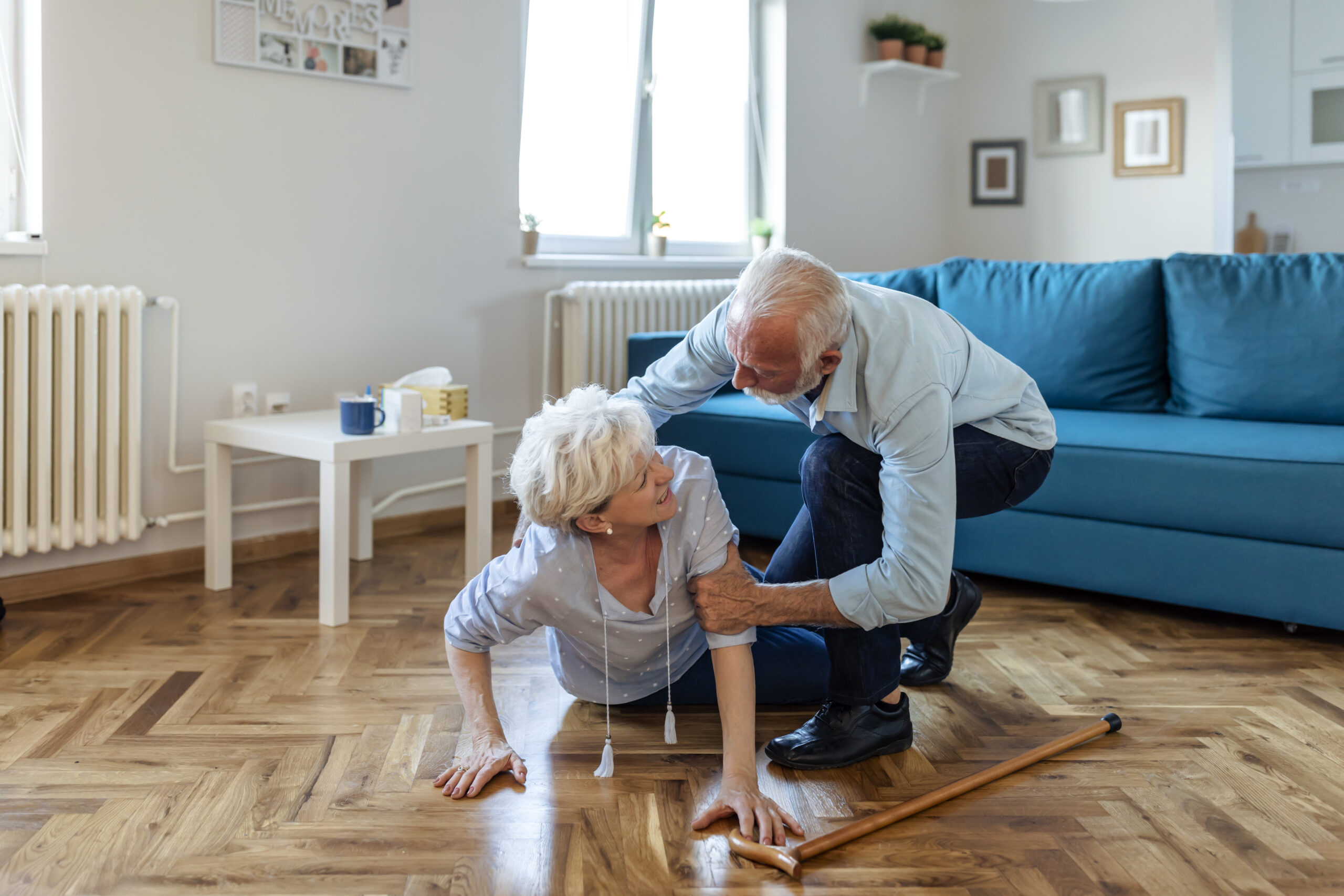4 Min Read
Home Safety Tips for Seniors

Many seniors want to “age in place”—or stay in their homes as they grow older. But there are many risks associated with seniors living by themselves, one of the biggest being a heightened risk of falling. Burns, fires, and poisoning also pose a danger to seniors living on their own. To keep yourself or a loved one safe, follow these home safety tips.
Reduce Fall Risk
According to the Centers for Disease Control and Prevention, every second of every day, a senior (aged 65+) suffers a fall in the U.S.—making falls the leading cause of injury and injury death in this age group. One out of four older adults will fall each year in the United States, and one out of every five falls causes an injury, such as broken bones or a concussion. Use this checklist to find and fix hazards in your home.
- Remove clutter (shoes, books, papers, etc.) from stairs and floors.
- Fix loose or uneven steps.
- Make sure carpets are firmly attached to steps and floors using non-slip backing.
- Fix loose or broken handrails.
- Make sure you have a clear walking path through rooms.
- Tape wires or cords to the wall or floor.
- Keep things you use often on lower shelves.
- If you use a step stool, get one with a bar to hold onto.
- Put nightlights in areas that you may need to access after dark, like hallways or bathrooms.
- Use non-slip rubber mats on bathroom floors and in showers/tubs.
- Place grab bars next to the toilet and inside the bathtub.
- If a lightbulb burns out, ask a friend or family member to replace it.
Protect Against Fires and Burns
According to the U.S. Fire Administration, in comparison to the population at large, starting at age 65, people are twice as likely to be killed or injured by fires. These safety tips help reduce your risk:
- Never smoke inside.
- Put working smoke alarms on every level of your home.
- Test smoke alarms monthly, and change batteries yearly.
- If you have hearing loss, get a fire alarm that uses flashing lights or vibration.
- Remain in the kitchen when frying, grilling, boiling, or broiling food.
- Do not leave the home when using the oven.
- Set timers when cooking.
- Don’t wear loose clothes or clothes with long sleeves when cooking.
- Keep towels and oven mitts away from the stovetop.
- Keep flammable items away from radiators, space heaters, fireplaces, wood stoves, and furnaces.
- Replace outlets if plugs do not fit snugly.
- Avoid using extension cords.
- Don’t overload electrical circuits.
- Only burn candles when you’re in the room.
- Keep candles at least 12 inches away from flammable materials.
In the event of a fire, leave the house and call 911 immediately. Do not try to put out the fire yourself. Plan an escape route based on your physical abilities and practice a fire drill at least twice a year.
Prevent Poisoning
Did you know that seniors are at a greater risk for accidental poisoning than younger adults and teens? More than 90% of poisonings happen in the home, specifically in the kitchen, bathroom, and bedroom. Prevent accidental poisoning from carbon monoxide, medications, and cleaning products:
- Never heat your home with a stove, oven, or grill.
- Place a carbon monoxide detector on every level of your home.
- Keep medications in their original containers.
- Take medications in well-lit rooms.
- Call your doctor if you have any questions about your medication dosage or when to take medication.
- Never mix bleach, ammonia, or other cleaning liquids together while cleaning.
Keep Emergency Numbers on Hand
Emergency numbers should be easily accessible and next to each phone in the house. If you don’t have a landline, program emergency numbers into your cellphone and keep a written list in an easy-to-find, memorable place, like next to the front door or on your bedside table. Write down these phone numbers:
- 911 – used for emergencies.
- Your local police department – used for non-emergency police intervention.
- Your primary hospital.
- Your doctor.
- 1-800-222-1222 – Poison Control.
- 888-426-4435 – Animal Poison Control.
- Your veterinarian’s office (if you have a pet).
- Your water and power companies.
- A next-door neighbor.
- Your emergency contact.
Safety at Grand Oaks
Grand Oaks Senior Living is located on the Sibley Memorial Hospital campus, which means quality healthcare is accessible to you without ever stepping foot outside. Each of our apartments are equipped with safety features in every room to allow you to call for help, and with 24/7 security and monitoring for your peace of mind. Your bathroom was designed for your safety.
At the same time, your surroundings feel like home, not a hospital room. Our apartments are sophisticated, bright, and airy, and our lovely courtyards invite you to rest or stroll. Our common areas are lively, social, and full of activity.

0 Comments